Partners in micromobility | PENDLR and Schwalbe: How Schwalbe gives old tires a second life
17. März 2025
•Bram van Duinen•5 Min. LesezeitToday is Global Recycling Day! To mark this special occasion, we visited Schwalbe to learn more about their pioneering recycling program for both inner and outer bicycle tires. Schwalbe, a partner of PENDLR, has been working for years to make its production process more sustainable and to close the material loop. We spoke with Maiko Bakker and Elisa Treling about Schwalbe’s ambitions and the challenges they face along the way.
Sustainability as a Core Value
"We have always been a manufacturer of bicycle tires, nothing more, nothing less," says Maiko. "Since we don’t have a large investment company behind us and focus solely on bicycle tires, we can truly be pioneers in sustainability."
The first steps towards recycling were taken as early as the year 2000. "That was when we first started exploring what we could do with the waste streams of bicycle tires. Since a bicycle tire is made of many materials and naturally wears down with use, the remaining material is less pure. This makes reuse more challenging."
Innovative Recycling Solutions
The first recycling attempts involved compressing tires into rubber mats, like those used in bike workshops and gyms. "That was a great first step, but it was still just ‘downcycling.’ We wanted to go further."
In 2010, Schwalbe introduced a key innovation: a puncture protection layer made from recycled latex. "At that time, we were not yet able to use high-quality recycled rubber for the tread, but we could use it for the puncture protection layer. Today, this layer—one-third of which is made from recycled latex—is found in our most popular tires, such as the Marathon and Energizer Plus."
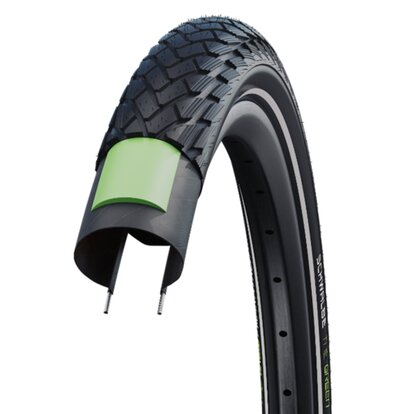
‘’When our recycling portal is not working, the mailbox fills up.''
The Major Breakthrough: Recycling Inner Tubes
A major breakthrough came in 2015 with the recycling of inner tubes. "Inner tubes are ideal for recycling because they are made entirely of butyl rubber," Maiko explains. "We remove the valves, which can be fully reused, and the rubber is devulcanized so that we can create new inner tubes."
The process starts at bicycle shops and dealers. "Dealers collect the inner tubes and can send them to us free of charge—we cover the shipping costs," says Elisa. "All the inner tubes are then stored in large containers in Germany before being shipped back to Indonesia for recycling."
The program grew rapidly. "In the Netherlands alone, we now recycle about 400,000 inner tubes per year! What I personally find amazing is how skeptical dealers were in the beginning. ‘I’ll just throw them away,’ we often heard. But now, nearly 1,300 dealers actively send in tubes. If our recycling portal goes down, our inbox floods with messages," Maiko laughs.
The Benelux is not the only region where Schwalbe runs this program. "We are active all across Europe, as well as in the US and the UK, and we are constantly looking for opportunities to expand."
Outer Tires: The Biggest Challenge
Recycling outer tires turned out to be an even bigger challenge. "An outer tire consists of multiple materials, including rubber, steel, and chemical additives. You can’t recycle something that is made up of so many different components," Maiko explains. "That’s why we partnered with Pyrum Innovations. Together, we developed a process in which outer tires are shredded and the raw materials are separated again."
Once collected, the outer tires undergo a process that recovers gas, oil, textiles, steel, and Carbon Black. Carbon Black is then used in the production of the Green Marathon, which is made from 100% Fair Rubber, 99% free of harmful substances, and consists of 80% recycled and renewable materials. In Germany, the recycling of outer tires has already been a great success, and we hope to introduce it in the Netherlands in the coming years.
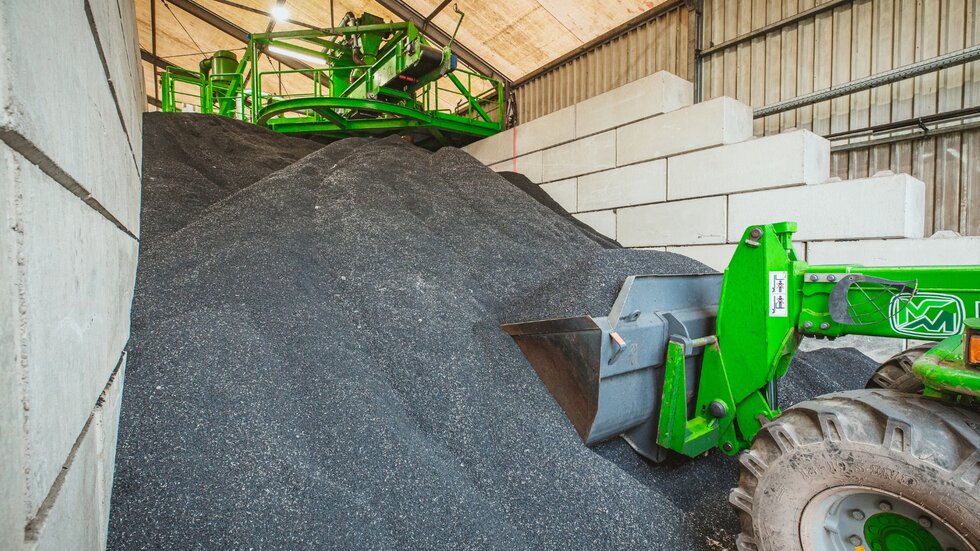
From Recycling to Conscious Material Choices
Beyond recycling, Schwalbe is also critically assessing the origins of its raw materials. "For coffee and chocolate, Fairtrade certification has been around for years, but for rubber, it didn’t really exist. There was a small organization called Fair Rubber, but only a few small players were involved. We decided to join Fair Rubber, and now we pay producers 150% of the global market price—provided they meet fair production standards. Today, 70% of our production carries the Fair Trade label, and our goal is to reach 100% by 2030."
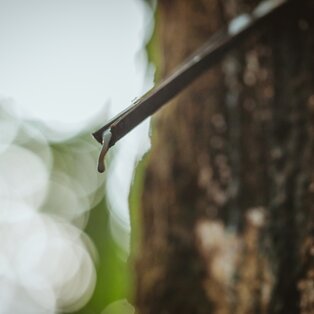
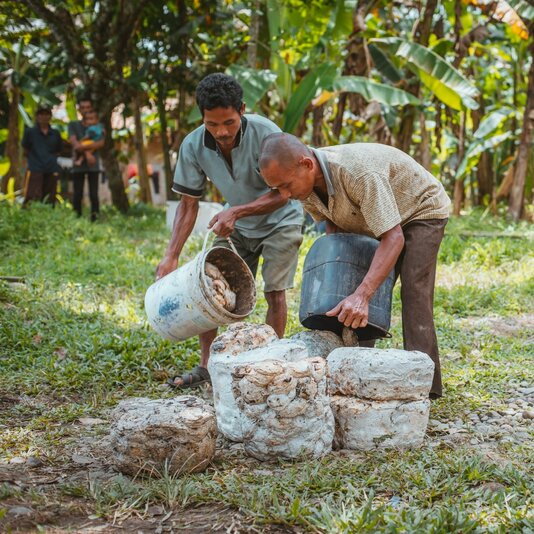
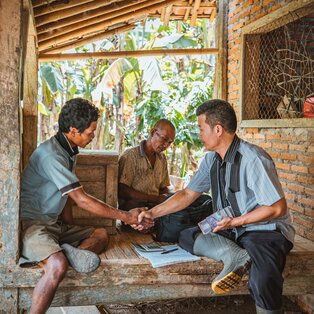
A Taste for More
Schwalbe is committed to embedding sustainability even further into the cycling industry. "The strongest part of our story is that this is not just a marketing gimmick. Every sustainable product we introduce has the same price as its predecessor. We only sell the sustainable version. We want recycling and sustainability to become the norm, not the exception."
"It should be as natural as collecting and returning glass bottles or batteries."
With millions of tires already recycled and a growing international network of sustainable dealers, Schwalbe is proving that a circular economy in the cycling industry is possible. "We’re only at the beginning of what’s possible, and we are determined to push even further."
Working Together for a Sustainable Future
Schwalbe’s innovative recycling programs demonstrate that true sustainability is achievable in the cycling industry. By continuously investing in circular solutions, they prove that sustainability does not have to come at the cost of quality or affordability. At PENDLR, we share the same vision: a cycling world where reuse and recycling are the standard. That’s why we’re proud to partner with Schwalbe. Together, we are making daily mobility more flexible, efficient, and green!
Want to know more about this collaboration? Feel free to contact us via the buttons below.
Bram van Duinen
Performance Marketeer
Stay up to date
with our newsletter
We make the daily commutes in and around the city more flexible, efficient and green. We are your partner in micromobility.